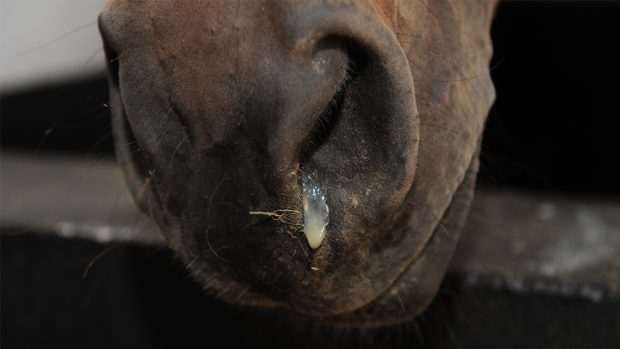How many times have you given your horse antibiotics? The medical world has hit crisis point, and antibiotics are not working as well as they used to. It means horse owners can no longer take for granted that antibiotics will clear up bacterial illnesses.
Antibiotics work by killing bacteria or preventing them growing, so that the horse’s immune response can control the infection. Resistance occurs when a population of bacteria is no longer susceptible to a previously effective antibiotic. Attempts are being made to find new antibiotics, but that isn’t the whole answer in preventing resistance.
Here is Mark Bowen MRCVS’s advice for protecting your horse against this ever-growing threat:
1. Use antibiotics carefully and only when necessary. Most equine vets have signed up to the Protect ME policy developed by the British Equine Veterinary Association (BEVA), which aims to reserve certain antibiotic types for critical cases.
2. Remember that not all infections require antibiotics and your vet will not always dispense them, even where bacteria are clearly involved. The horse’s immune system has the ability to control many such infections.
3. If antibiotics are prescribed make sure you complete the full course, as instructed by your vet, without missing any doses.
4. Limit the spread of infection with simple measures, such as washing your hands. People can carry MRSA and may contaminate uninfected wounds or transfer resistant bacteria from horse to horse.
Like this? You might also enjoy reading these:
Antibiotics: What happens when the drugs don’t work? *H&H VIP*
Horse owners warned against overuse of antibiotics by vets
Horses that have been in hospital are more resistant to antibiotics
5. Isolate new arrivals at your yard for at least three weeks. This will help lower the risk of admitting a horse that is incubating disease.
6. Pledge to become an “antibiotic guardian” and spread the message to other horse owners. Find out more at www.antibioticguardian.com
Read more about antibiotic resistance, and many more medical matters, in the new issue of H&H Ask The Vet, on sale now in WHSmith, supermarkets and independent newsagents.





